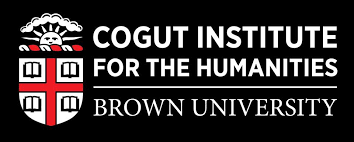
The Cogut Institute for the Humanities advances “collaborative research and curricular innovation” in humanities and throughout Brown. The Cogut Institute offers a number of fellowships that “support the pursuit of the humanities at Brown University.” These programs “promote active dialogue, public programming, and collaborative teaching and research on the most challenging questions facing humanities scholars today.” This academic year, two members of the Classics Department, and PhD candidate Kelly Nguyen and Prof. Steve Kidd, received Cogut Fellowships.
 Kelly writes:
Kelly writes:
The Cogut Fellowship grants me a full academic year to focus on completing my dissertation, "Vercingetorix in Vietnam: Classical Inheritance and Vietnamese Ambivalence." A key component of the fellowship is the weekly seminar in which fellows workshop their works-in-progress. Through this seminar, not only do I receive feedback from scholars of diverse backgrounds and training, but I am also exposed to exciting new research from different fields. In an upcoming seminar, I will be workshopping my chapter that examines what I call "the battle of the classics," the struggle in French colonial Vietnam to supplant Sino-Vietnamese classics, which had been deeply embedded in the educational system as well as in the local social fabric, with Greco-Roman classics. Vietnam is a particularly illuminating case study for classical reception because the European colonizing power, the French Empire, had to reckon with the legacies of a former imperial authority, the Chinese Empire. In this struggle between foreign cultural and political authority, however, the casualty is the Vietnamese community's humanity, as well as their humanities. But not to worry - the remaining chapters of my dissertation examines how Vietnamese intellectual leaders used their European classical education as cultural mediators to negotiate their intercultural identities and to ultimately reclaim their agency and space.
 Steve writes:
Steve writes:
During my Cogut Grant I’m writing about an influential Greek writer from the second century CE, Lucian of Samosata. He’s thought to be the father of the science fiction novel, and his satires and humorous essays have been best-sellers for most of the 2000 years or so since writing them. During the Renaissance, for example, he was a favorite author of Erasmus, Thomas More, and other humanists (More’s translations of Lucian far outsold copies of his Utopia in those days). But despite eventually becoming a canonical Greek author, Lucian, in his day, always felt like an outsider. For one, he was an ethnic outsider: he identified as a “Syrian” from the banks of the Euphrates river – so really at the eastern border of the Roman Empire, in a territory regularly contested by the Parthians. As he put it, no matter how excellent his writing was (and he thought it was pretty excellent), he always had the reputation of being a “foreigner” – barbaros, in Greek. But he was an outsider not just in that sense. He was, as a satirist, always standing outside of society and mocking it. He mocked people for their religious beliefs, he mocked the habits of fame-seekers like himself, and, most of all, he enjoyed mocking philosophers and their philosophical beliefs. But if all philosophical belief is to be mocked, what Lucian's own view of the world?
Congratulations to Kelly and Steve on their outstanding achievement!